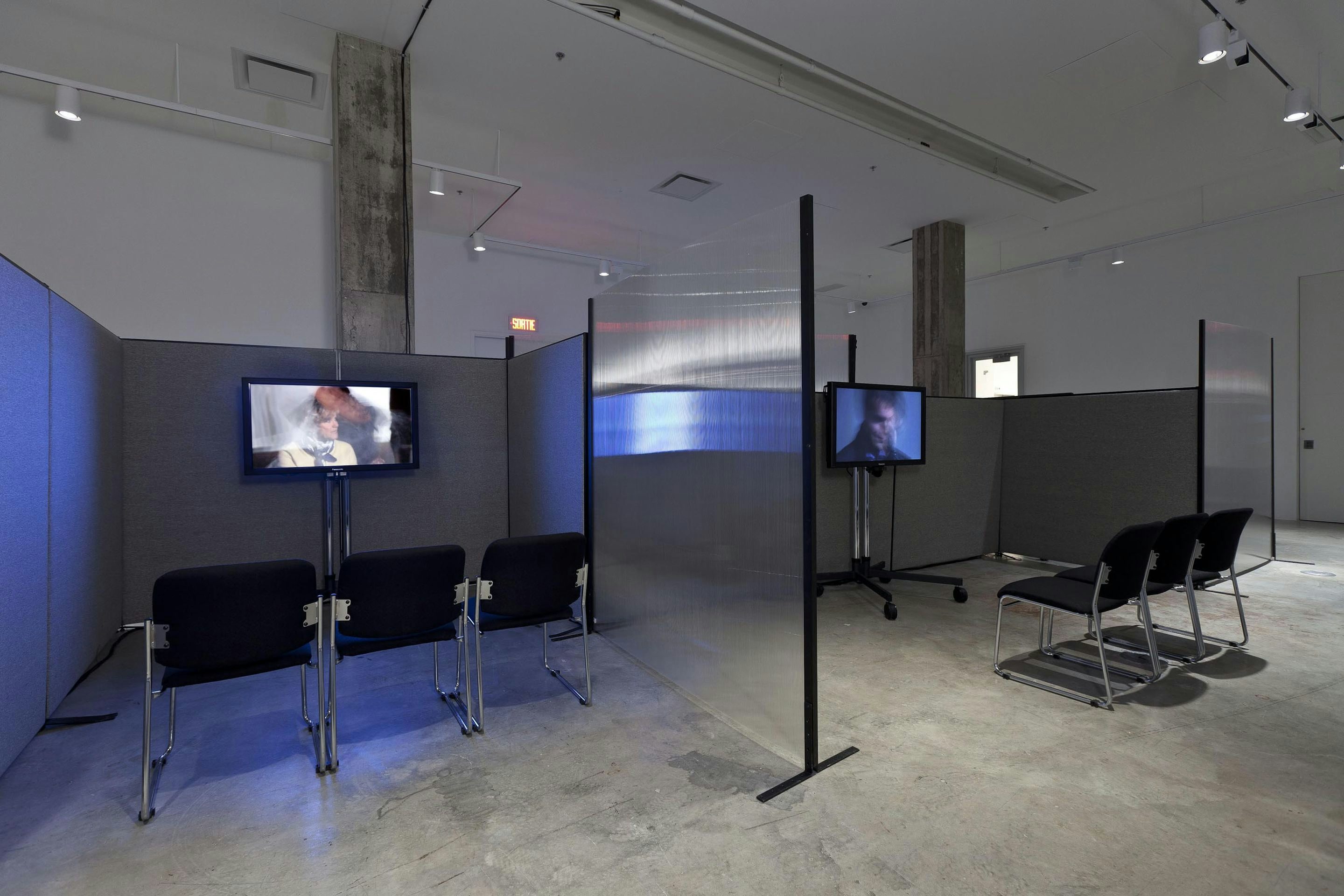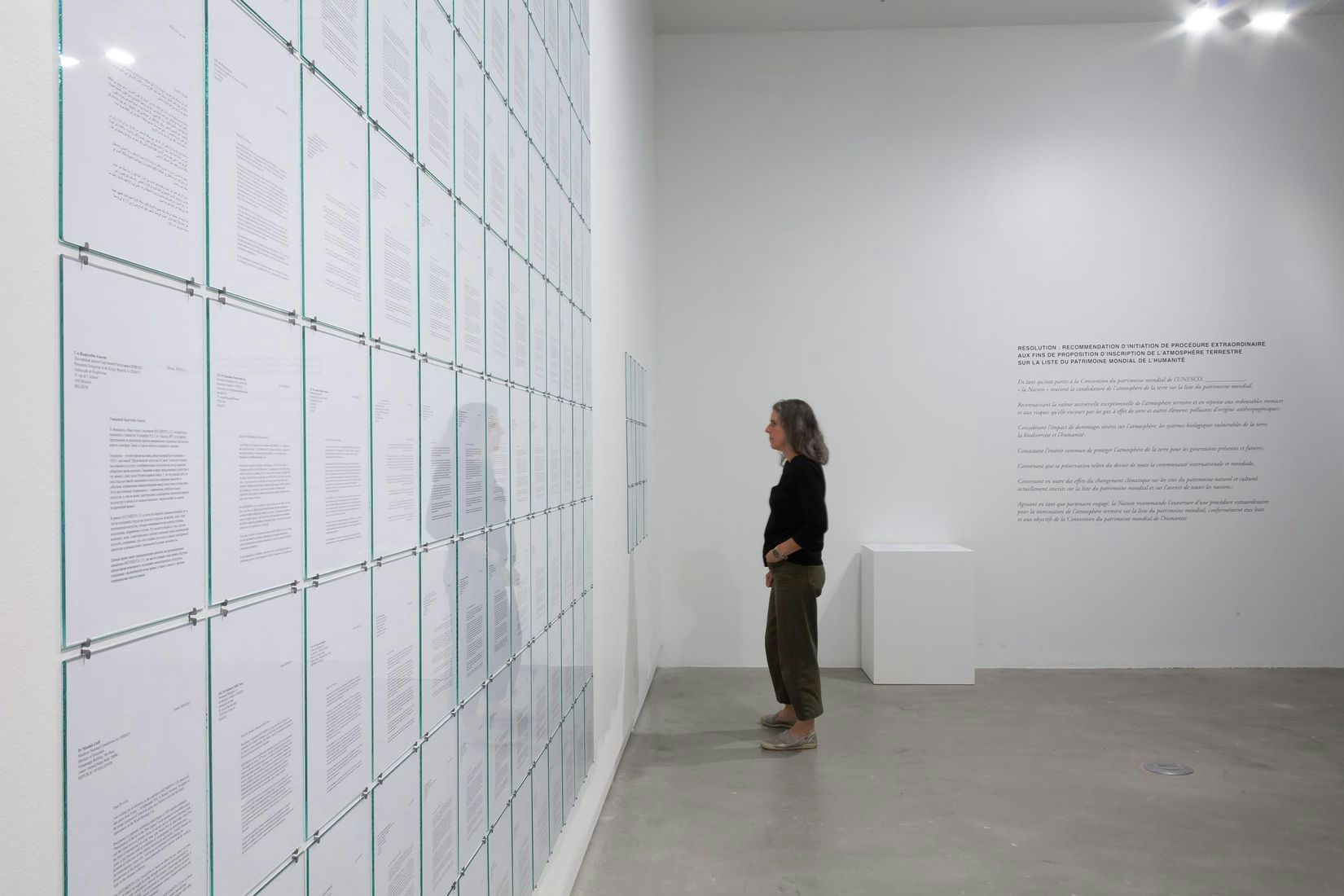
Melanie Gilligan
2012.06.08-08.11
Affect & Exchange
POPULAR UNREST
London-based Canadian artist Melanie Gilligan’s newest multi-episode drama, Popular Unrest, presents surreal, satirical and disturbing narratives based on the current state of politics, the public realm, and the recent global economic crisis.
Rather than take a documentary approach to its subject matter, the film offers a fictional future, in which all monetary exchanges and social interactions are overseen by a system called ‘the Spirit’. Its five episodes center on eight unrelated people who are mysteriously drawn together to form a group. When assembled they feel a deep and persistent sense of connection. They are not the only ones; this phenomenon of ‘groupings’ is happening world-wide. Meanwhile, a rash of mysterious and disturbing killings has broken out across the globe. These murders often take place in public but witnesses never see an assailant. As the story develops, the killings become the thread that ties the group to ‘the Spirit’, but they need to discover how and why.

Popular Unrest explores a world in which the self is reduced to a biology directly subjected to the needs of capital. Hotels offer bed-warming servants with every room, people are fined for not preventing foreseeable illness, the overweight consume foods that waste the body from within, and the unemployed repay their debt to society in physical energy. If on the one hand this suggests the complete domination of life by exchange value do the newly formed groups offer a way out?
Shot in London with a cast of twelve main actors, Popular Unrest is partly inspired by David Cronenberg’s ‘body horror’ and American television dramas like Bones, CSI and Dexter, in which reality is perceived through a pornographic forensics of empirical and visceral phenomena. As with Gilligan’s recent video works, the film’s episodic structure takes its cue from television and its ability to dispense a storyline in stages.
Popular Unrest was co-commissioned by Chisenhale Gallery, London; Kölnischer Kunstverein, Cologne; Walter Phillips Gallery, The Banff Centre; and Presentation House Gallery, North Vancouver. Supported by Galleria Franco Soffiantino, Turin and the Arts Council of England.
CRISIS IN THE CREDIT SYSTEM
Crisis in the Credit System is a four-part drama dealing with the credit crisis. It was released at the start of October 2008, two weeks after the Lehman Brothers collapse.
A major investment bank runs a brainstorming and role-playing session for its employees, asking them to come up with strategies for coping with today’s dangerous financial climate. Role-playing their way into increasingly bizarre scenarios, they find themselves drawing disturbing conclusions about the deeper significance of the crisis and its effects beyond the world of finance.
Using fiction to communicate what is left out of documentary accounts of the crisis, the short, TV-style episodes reflect the strangeness of life today in which the financial abstractions that govern our lives appear to be collapsing.
Crisis in the Credit System, commissioned and produced by Artangel Interaction, is the result of extensive research and conversation with major hedge fund managers, key financial journalists, economists, bankers and debt activists.
www.crisisinthecreditsystem.org.uk
The essay was originally published in Fillip 16 (Spring 2012). It will be included in Intangible Economies edited by Antonia Hirsch, forthcoming by Fillip Editions Fall 2012.
